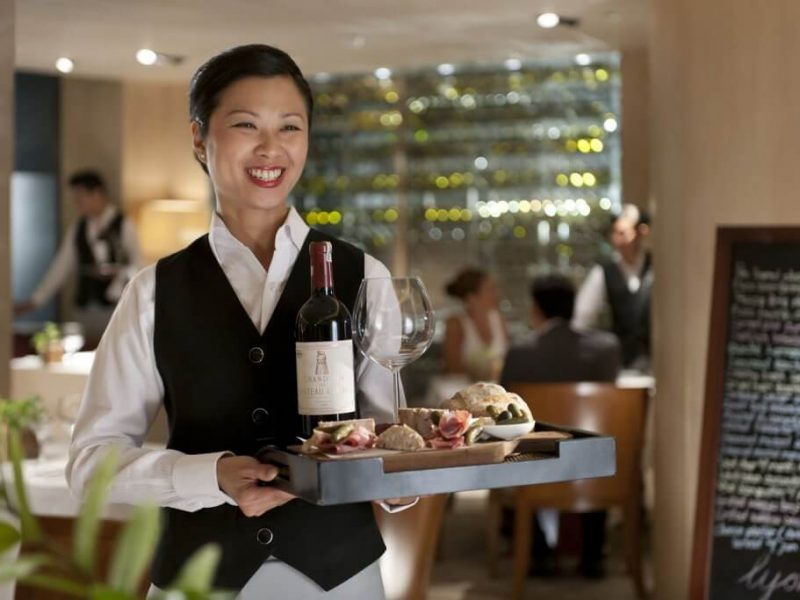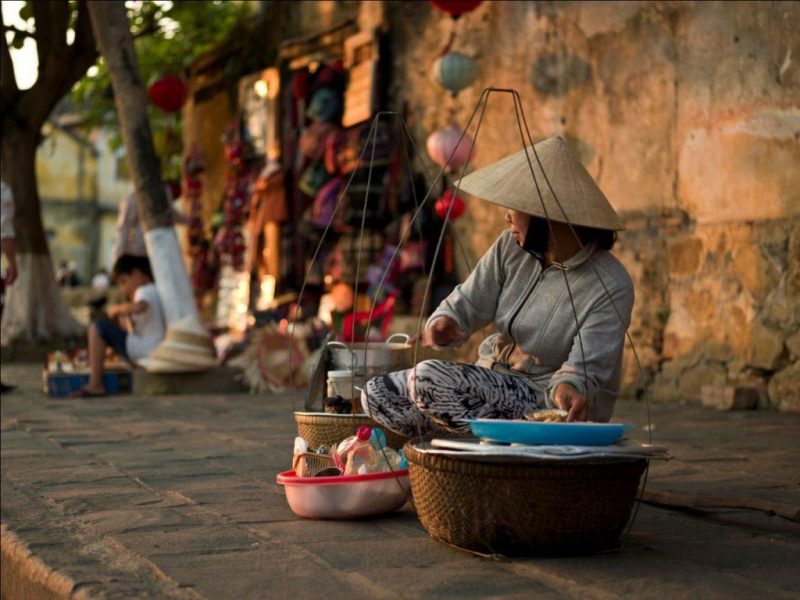I. Overview
Tipping, also known as gratuity, is the act of voluntarily giving additional money to service providers as a token of appreciation for their excellent service. In Vietnam, tipping was not traditionally a part of the culture. However, with the growth of the tourism industry and the influence of Western customs, tipping has become more common, especially in areas frequented by international tourists.
II. How is tipping in Vietnam for tourists?
1. Culture of tipping in Vietnam
Every country has a different tipping culture. For example, in the US, which is considered mandatory in restaurants, they are charged 15-20% directly on the bill. Besides, leaving a tip in Japan or Italy is considered unusual and disrespectful.
In Vietnam, tipping is optional, which may or may not depend on the circumstances and feelings of the customer using the service. Even many Vietnamese people have ways to tip by bringing a typical item from their home to give. Some young people even drew pictures, took photos, or invited the tour guide to enjoy food together to thank them.
Overall, while tipping in Vietnam is becoming more prevalent, it is not as deeply ingrained in the culture as in some other countries. Travelers should be mindful of cultural sensitivity and respect local customs when tipping. Tipping is typically seen as a gesture of gratitude for exceptional service rather than an obligation.

2. Tipping guidelines in different sectors
2.1. Hotels
In 4- or 5-star hotels, a tip is usually 10% of the bill if the service charge is not included. In smaller hotels, tipping is usually optional. However, suppose you are satisfied with the facilities, the cleaning staff’s attentiveness, and the owner’s friendliness. In that case, you can send a little money, around $2.17, to show your appreciation. You can leave it under the counter or give it to your favorite staff directly.

2.2. Restaurants and Coffees
At some restaurants in Vietnam, a service fee of 5-10% is added to the bill, while coffee shops rarely have a service fee. However, if you love the service style or are comfortable visiting those places, you can send staff for about $2.17. If you plan to leave a tip, it is a good idea to have some small denominations of Vietnamese dong on hand.

2.3. Bars
Bars in Vietnam, especially in popular tourist destinations and urban areas, often attract a mix of international guests and trendy local young people. It is common for bars and other establishments in Vietnam to include a service charge or VAT in the bill. However, giving tips to bartenders about ingenuity, delicious drinks, or professional service is a familiar culture in bars. Prices can range around $5.

2.4. Spas
Spas and beauty services in Vietnam are often more budget-friendly compared to similar services in other countries. In Vietnam, some luxurious spas may already cover your gratuity in the service charge included in the bill, and you may not need to tip more. However, a $2,17 to $4,35 tip is necessary for attentive service staff in many more minor services.

2.5. Tour Guides
When traveling to Vietnam, tipping tour guides is indeed a common practice and a thoughtful way to show appreciation for their skills and hard work. Tour guides play a significant role in enhancing your travel experience, especially during activities like trekking. An average of $3 to $5 per day is sufficient. A small gift from your country is also a meaningful way to tip the friendly tour guides that have accompanied you.
2.6. Taxi drivers
Polite, amiable, and trustworthy taxi drivers who speak English well are invaluable gems. If you get one, consider showing your appreciation with a tip. If the driver goes the extra mile by assisting you with booking a car or suggesting the best attractions, a gratuity of approximately $2.17 would be a well-deserved reward. As with any tipping situation, tipping taxi drivers is discretionary, and the decision to tip and the amount you choose to give should be based on your satisfaction with the service received and your personal preference.

2.7. Street Vendors
Vietnam is a country with many small shops on the sidewalk. These shops are cheap, delicious and very popular with all ages. Usually, tipping street vendors in Vietnam is not a common practice, and it is not expected or required. Unlike in some other countries, street vendors in Vietnam typically set fixed prices for their goods or services, and there is no customary tipping culture for such transactions. If you like the taste of the food or the funny and friendly way they talk, you can tip them from money left over or simply thank them.

3. Tips and recommendations for visitors
- Some establishments might include a service charge or VAT in the bill. You can check the receipt before deciding on additional tipping.
- Tipping should be seen as a token of appreciation for excellent service, and it’s always best to tip discreetly and with a smile.
- Whenever possible, hand it over in person the tip to the exceptional service staff you wish to value. This ensures that your gratuity goes directly to the deserving individual.
- Tipping in Vietnam is not required. Instead, you can send them a thank you by giving a good review on their social networking platforms or referring your friends to visit.
III. Conclusion
In short, tipping in Vietnam has evolved over the years, and while not deeply rooted in the traditional culture, it has become more common, especially in the tourism industry. Metta Voyage believes that polite, friendly, and honest service providers are highly valued, and showing appreciation through tipping can be a thoughtful gesture.
Contact us
Website: mettavoyage.com
Email: info@mettavoyage.com
Hotline 24/7: + 84 989 383 572


 Source
Source 
0 Comment